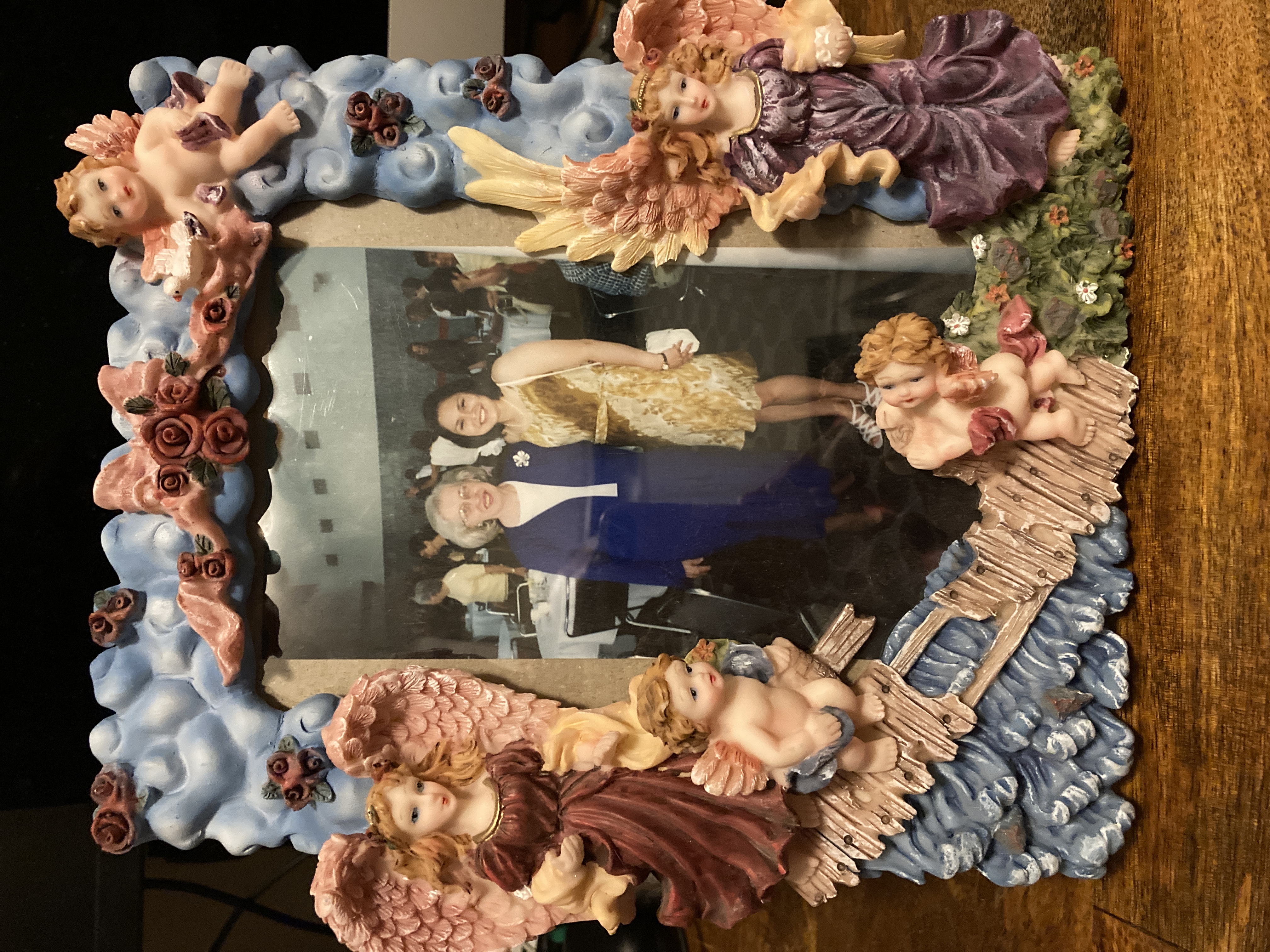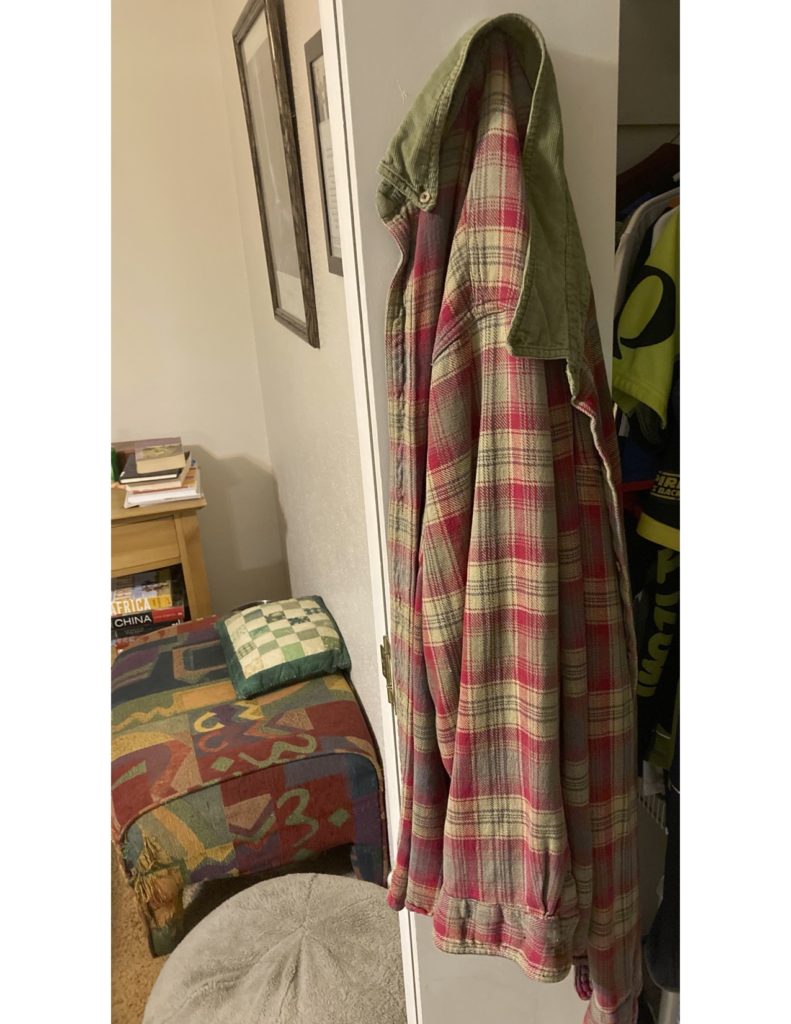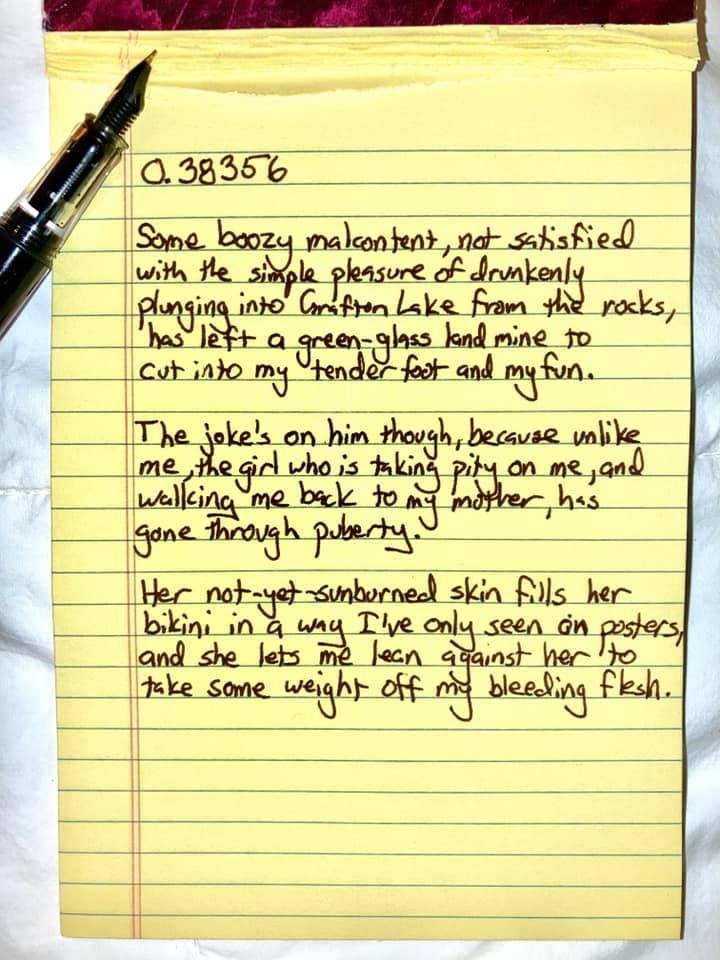In March 2016, I finished the Hell’s Hills 50-kilometer trail race, with cramps in my calves so painful that less than 200 meters from the finish line, I was worried I would fall and not be allowed to get up and finish. I alternated between little old man jog steps, and mincing little walking steps that would get me mocked by any toddler that could make words. I did finish, and it was the ONLY time in my life I cried after a race. There are more stories from that race, and more lessons from the cramping-hours I’d like to share, but I can’t encapsulate it in three-hundred words. I’ve discovered in the last few weeks of writing that I seem to have reached the limit of what I can write in a one-hour session after work, or after my day is wrapped up, and feel satisfied. For now, at least, it feels like I’ve squeezed most of the juice out of the short-form memory writing.
My 150th post about being a college DJ was a mad-scramble to post something, after about ninety minutes of writing about a different subject. I really liked where it was going, but I had only scratched the surface when I looked at the time, and realized I wasn’t going to get it to a place I would be comfortable sharing. I added it to a scrap-book of half-written essays that I loved starting, but would have to “finish later”.
In May of 2016, I met a running friend for the Paleface Trail Marathon, a “measly” 26 miles, with a longer race completion medal and some-overconfidence. The Texas temperature change in just 6 short weeks was significant, and the dawn thermometer was already close to what it had peaked at in the middle of the March race. After I passed through the half-way point, I could already tell I was flagging, and just past a water station I started feeling woozy. Walking back to the water station for some Gatorade, I made the decision to stop the run. I was pretty sure that if I kept going, there was a chance I was going to hurt myself, and add a lot of stress to a lot of runners and volunteer’s days. I opted to walk off the course under my own power while I still could, before I became a hazard. It was not so much a humbling lesson as a lesson in humility, and I do think there is a subtle difference.
Each daily post is “titled” with a number that increases by 1/365 (in decimal form), under the pretense that on my 365th post, it would read 1.00000. I don’t want to wait another 215 days to finish the post I started earlier this week. It means too much to me. But honestly, I don’t know how I’m going to write a new short-post every day, then chip away at the deeper stuff. Additionally, and I can’t believe I’m writing this out for everyone to see, and confirm once and for all just how nerdy I am, the daily posts are keeping me from writing and running the D&D campaign I DM with my friends and family. Go ahead and mock me for complaining about my “first world problems”. I do.
So today I’m walking off the course I set for myself on my birthday. The past 2 days of not writing were some of the most refreshing and creative days I’ve had in a month. The Google-sheet I set up still has a lot of writing prompts on it, and I’d like to meet those deadlines for myself as the weeks go on. Obviously one danger of easing up on yourself is that it gets easier to let even more things slip, so we’ll have to see what future me actually does. Less than a month into this project, Ginny Gaige, asked if I was posting them because I had a terminal illness and this was my way of capturing my memories before my brain went. The answer was no then, and it’s still no. I’m not stopping because anything significant has changed in my life. I’m stopping posting daily because the most significant change is my relationship to posting daily. I’ve jogged around this particular block enough times to know exactly when the wind gusts, and I want to go for longer, more exploratory runs.
A lot of you have been giving me wonderful feedback from this, and I’m letting down the little imaginary versions of y’all that live in my head. I know the actual y’alls are way less judgemental, though. Thanks for being excellent.


